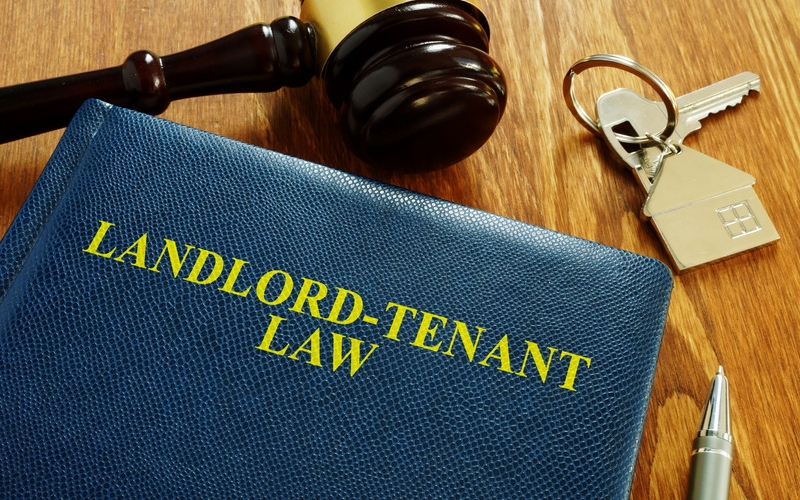Last Updated on March 18, 2024 by Kelvin Nielsen
If you are a tenant in Delaware, you have certain rights that are protected by law. These rights include the right to a safe and habitable living space, the right to privacy, and the right to a return of your security deposit. However, if your landlord has violated any of these rights, you may be wondering if you can sue them.

Understanding landlord-tenant laws in Delaware is crucial if you are considering taking legal action against your landlord.
Delaware law provides tenants with a number of protections, including the right to withhold rent if the landlord fails to make necessary repairs, the right to sue for damages if the landlord violates your privacy rights, and the right to sue for the return of your security deposit if the landlord fails to return it within a certain period of time.
Legal actions against landlords in Delaware can be complex, so it is important to consult with an experienced attorney if you are considering taking legal action.
An attorney can help you understand your rights, evaluate your case, and represent you in court if necessary. With the right legal guidance, you can hold your landlord accountable for any violations of your rights as a tenant.
Key Takeaways
- Delaware tenants have certain rights that are protected by law.
- Understanding landlord-tenant laws in Delaware is crucial.
- Legal actions against landlords in Delaware can be complex, so it is important to consult with an experienced attorney.
Related Posts:
- What a Landlord Cannot Do in Delaware
- What Rights Do Tenants Have in Delaware?
- Can You Withhold Rent in Delaware? A Guide to Tenant Rights
Understanding Landlord-Tenant Laws in Delaware
If you are a tenant in Delaware, it’s essential to understand your rights and responsibilities under the state’s landlord-tenant laws. These laws govern the relationship between landlords and tenants and ensure that both parties are protected. In this section, we’ll take a closer look at some of the key provisions of Delaware’s landlord-tenant laws.
Delaware Residential Landlord-Tenant Code
The Delaware Residential Landlord-Tenant Code (§ 5101 et seq.) is the primary law that governs the relationship between landlords and tenants in the state. This code sets out the rights and responsibilities of both landlords and tenants, including provisions related to lease agreements, security deposits, eviction procedures, and tenant rights.
Security Deposit Regulations
Under Delaware law, landlords can require tenants to pay a security deposit at the start of the lease term. The security deposit can be used to cover any unpaid rent or damages to the rental unit beyond normal wear and tear.
Delaware law limits the amount that landlords can charge for a security deposit to the equivalent of one month’s rent.
Eviction Procedures and Tenant Rights
If a landlord wishes to evict a tenant in Delaware, they must follow a specific legal process. The eviction process begins with a written notice to the tenant, which must include the reason for the eviction. If the tenant fails to vacate the rental unit, the landlord can file a lawsuit to evict the tenant.
Delaware law provides tenants with certain rights during the eviction process, including the right to a hearing and the right to appeal a court decision.
Fair Housing Act Compliance
Landlords in Delaware must comply with the federal Fair Housing Act, which prohibits discrimination against tenants based on their race, color, national origin, religion, sex, familial status, or disability.
Delaware law also prohibits discrimination based on sexual orientation, gender identity, source of income, and other protected characteristics. Landlords cannot refuse to rent to tenants based on these characteristics or impose different rental terms and conditions based on them.
Related Posts:
- Delaware Security Deposit Law
- How to Delay an Eviction in Delaware
- How to Evict a Commercial Tenant in Delaware
Legal Actions Against Landlords
If you are having issues with your landlord, there are several legal actions you can take to address the situation. Here are some of your options:
Filing a Complaint in Justice of the Peace Court
If you believe your landlord has violated your rights, you can file a complaint in the Justice of the Peace Court. This court handles cases involving disputes between landlords and tenants, including claims for rent, late fees, and damages. You can file a complaint on your own or with the help of an attorney.
Addressing Health and Safety Violations
If your landlord has failed to address health and safety violations in your rental unit, you can take legal action to force them to make repairs.
You can file a complaint with the local health board or withhold rent until the necessary repairs are made. If your landlord retaliates against you for reporting the violations, they may be in violation of Delaware law.
Retaliation and Discrimination Cases
If your landlord has retaliated against you for exercising your rights as a tenant, or if you believe you have been discriminated against, you can file a lawsuit in court. This can be a complex process, so it is important to seek legal help. If you are successful in your case, you may be entitled to damages, a court order, or other remedies.
Remember, as a tenant in Delaware, you have legal rights and obligations. It is important to understand these rights and obligations and take appropriate action when necessary. If you need legal help, there are resources available to you, including legal aid organizations and private attorneys.
Disclosure: The content herein isn’t a substitute for advice from a professional attorney. It’s only meant to serve educational purposes. If you have a specific question, kindly seek expert attorney services.
Sources: Residential Landlord-Tenant Code, CHAPTER 53. Landlord Obligations and Tenant Remedies, Fair Housing Information Center,

Amanda Rose is a seasoned landlord with 13+ years of expertise in overseeing diverse properties. Her adept management spans single and family homes, along with multi-family apartments and condos, across Wyoming and South Dakota. Her commitment and proficiency have cemented her status as a thriving property management professional.
She is a member of the following organizations: Wyoming Landlord’s Association, National Association of Residential Property Managers (NARPM), Wyoming Apartment Association, South Dakota Multi-Housing Association (SDMHA), and South Dakota Landlord Association (SDLA).







